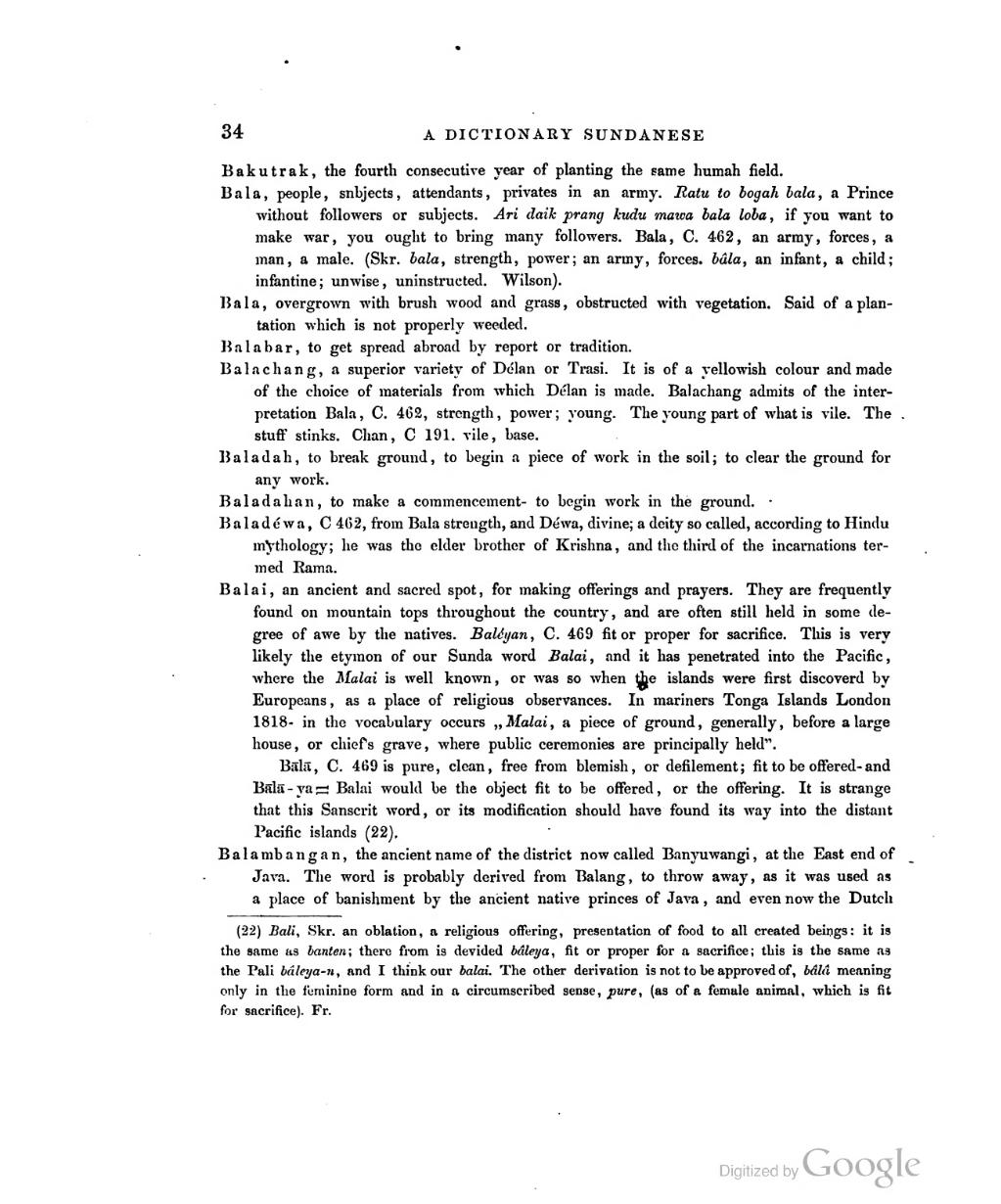Bakutrak, the fourth consecutive year of planting the same humah field.
Bala, people, subjects, attendants, privates in an army. Ratu to bogah bala, a Prince without followers or subjects. Ari daik prang kudu mawa bala loba, if you want to make war, you ought to bring many followers. Bala, C. 462, an army, forces, a man, a male. (Skr. bala, strength, power; an army, forces. bâla, an infant, a child; infantine; unwise, uninstructed. Wilson).
Bala, overgrown with brush wood and grass, obstructed with vegetation. Said of a plantation which is not properly weeded.
Balabar, to get spread abroad by report or tradition.
Balachang, a superior variety of Délan or Trasi. It is of a yellowish colour and made of the choice of materials from which Délan is made. Balachang admits of the interpretation Bala, C. 462, strength, power; young. The young part of what is vile. The stuff stinks. Chan, C 191. vile, base.
Baladah, to break ground, to begin a piece of work in the soil; to clear the ground for any work.
Baladahan, to make a commencement- to begin work in the ground.
Baladéwa, C 462, from Bala strength, and Déwa, divine; a deity so called, according to Hindu mythology; he was the elder brother of Krishna, and the third of the incarnations termed Rama.
Balai, an ancient and sacred spot, for making offerings and prayers. They are frequently found on mountain tops throughout the country, and are often still held in some degree of awe by the natives. Baléyan, C. 469 fit or proper for sacrifice. This is very likely the etymon of our Sunda word Balai, and it has penetrated into the Pacific, where the Malai is well known, or was so when the islands were first discoverd by Europeans, as a place of religious observances. In mariners Tonga Islands London 1818- in the vocabulary occurs "Malai, a piece of ground, generally, before a large house, or chief's grave, where public ceremonies are principally held”.
- Bālā, C. 469 is pure, clean, free from blemish, or defilement; fit to be offered- and Bālā-ya = Balai would be the object fit to be offered, or the offering. It is strange that this Sanscrit word, or its modification should have found its way into the distant Pacific islands (22).[1]
Balambangan, the ancient name of the district now called Banyuwangi, at the East end of Java. The word is probably derived from Balang, to throw away, as it was used as a place of banishment by the ancient native princes of Java, and even now the Dutch
- ↑ (22) Bali) Skr. an oblation, a religious offering, presentation of food to all created beings: it is the same as banten; there from is devided bâleya, fit or proper for a sacrifice; this is the same as the Pali bâleya-n, and I think our balai. The other derivation is not to be approved of, bâlâ meaning only in the feminine form and in a circumscribed sense, pure, (as of a female animal, which is fit for sacrifice). Fr.
